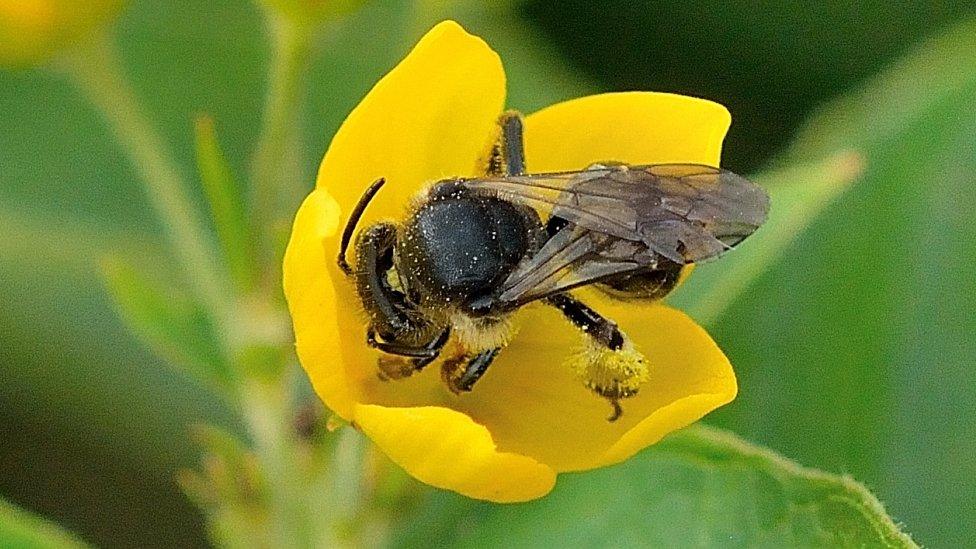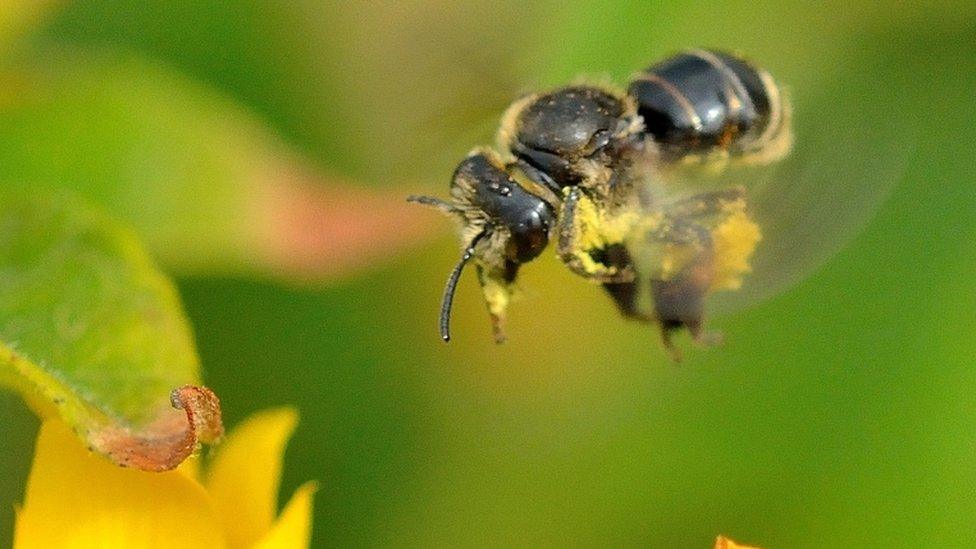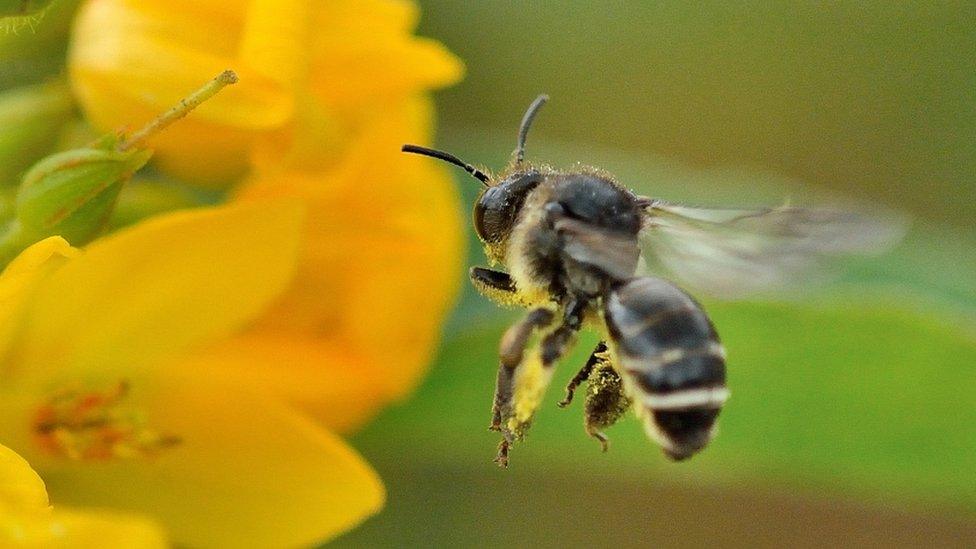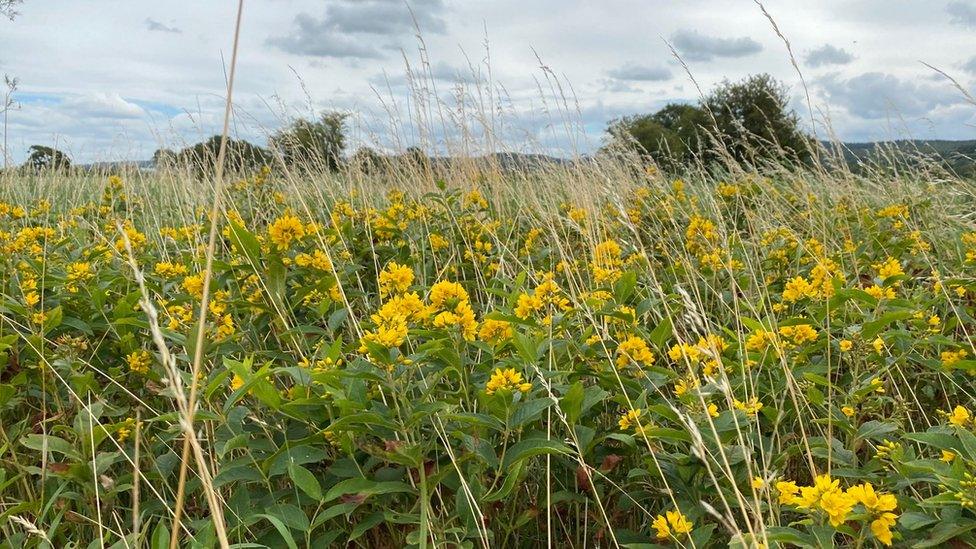Rare bee species discovered in North Somerset field
- Published

This species of bee mainly feeds on the yellow loosestrife plant
A rare species of bee has been found in a nature reserve
The yellow loosestrife bee, which mainly feeds on the yellow loosestrife plant, was discovered in a field in Yatton, North Somerset.
The bee is normally seen in southern England and it is the first time the species has been recorded in the Bristol and North Somerset region.
Tony Moulin, of Yatton and Congresbury Wildlife Action Group, said it was "incredible" and "exciting" finding it.

It is the first time the species has been recorded in the Bristol and North Somerset region
"It means so much to us, the sense of achievement of our group in saving the fields in which the flower grows on which the bee depends," he added.
He said it had "always been in the back of my mind" that he may find the bee, because the plant it feeds on was "growing strongly" in the field.
The Bees, Wasps and Ants Recording Society has confirmed the sighting.
The previous nearest recording sighting was on Westhay National Nature Reserve on the Somerset Levels.

Tony Moulin said it had "always been in the back of my mind" that he may find the bee
The bee makes its nests underground in ditch banks, waterproofing the chambers with an oil it makes from the pollen of yellow loosestrife.
Mr Moulin added: "When you begin to understand the very specific requirements of some of our insects, it is easy to see why they are at risk of extinction.
"These bees may have been in small numbers in the fields north of Yatton for centuries, but if the Yatton and Congresbury Wildlife Action Group had not bought the fields, if they had been sold for development or managed more intensively, then the colony would have been wiped out without anyone even knowing they existed."

Yellow loosestrife was found to be growing in a field owned by the Yatton and Congresbury Wildlife Action Group